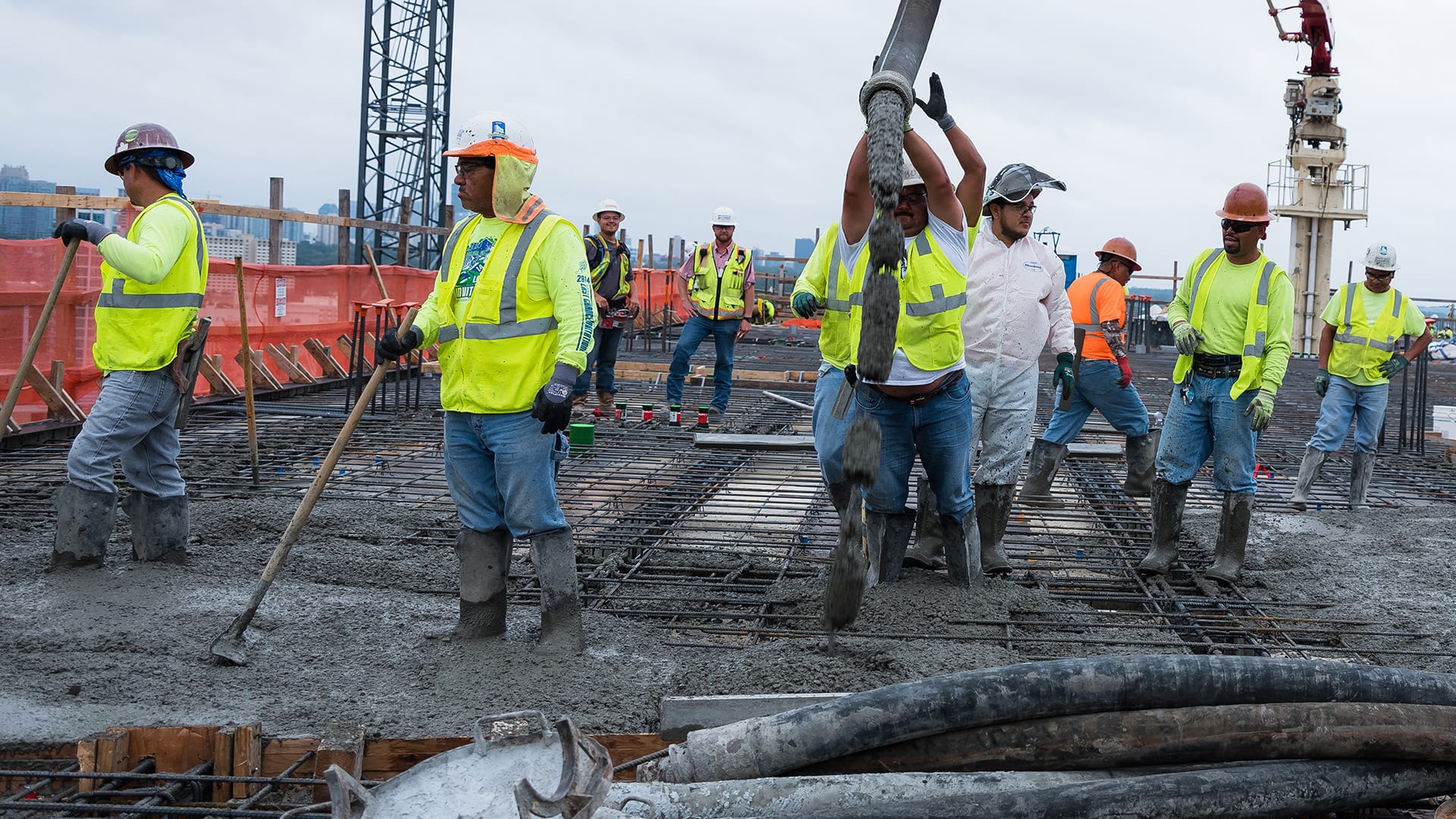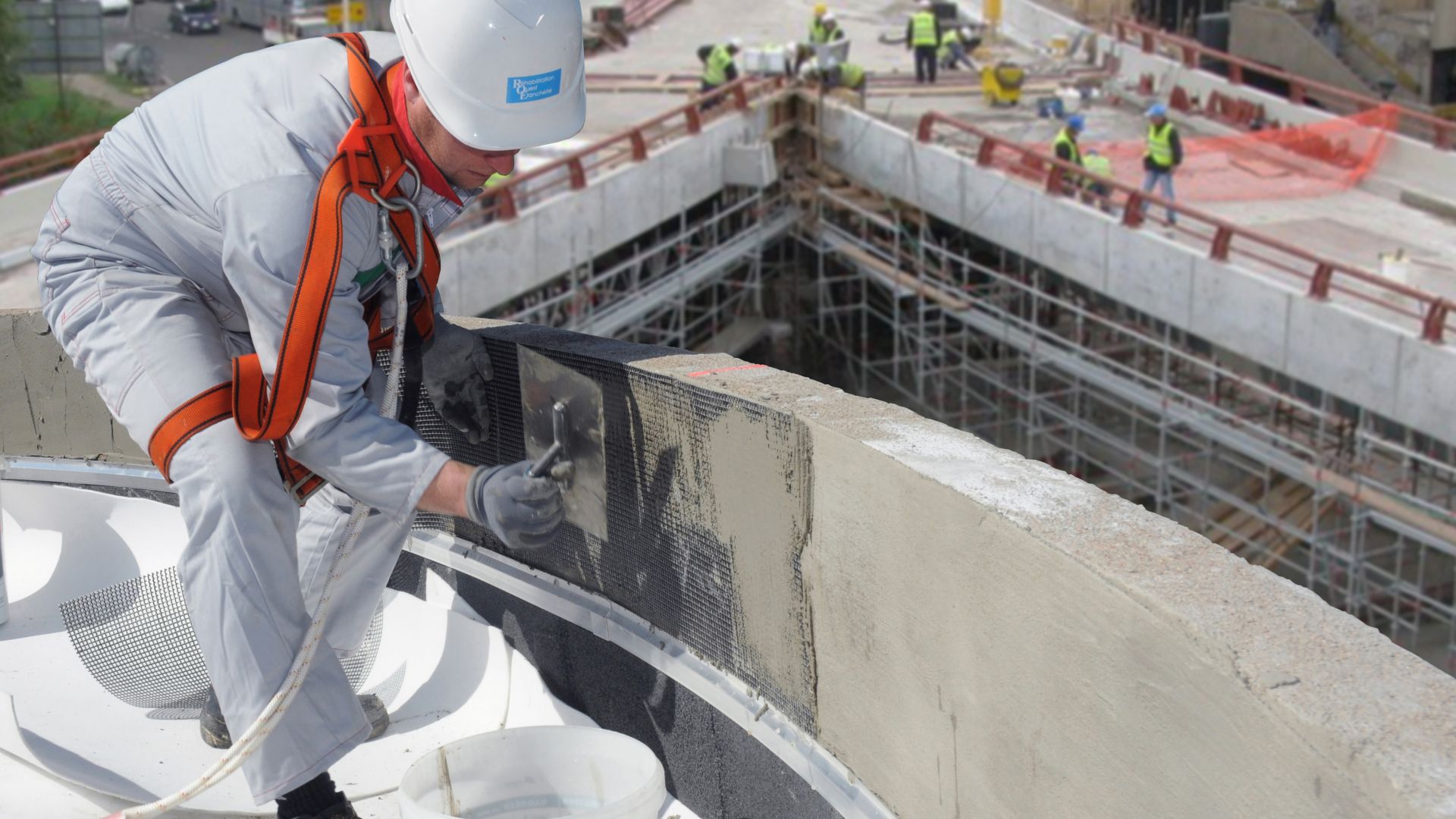How to Pick the Right Mix for Longevity with West Coast General Engineering Concrete
The Important Function of Concrete Foundation in Structural Integrity and Longevity
When it concerns developing a building, the structure is more crucial than you might think. Concrete structures offer unmatched strength and resilience, ensuring your structure can hold up against different environmental obstacles. Without a solid base, you risk potential concerns like changing or fracturing, which can endanger safety and security and worth. Recognizing the subtleties of concrete foundations could be the key to maintaining your financial investment for many years to find. What should you consider following?
Comprehending the Significance of Concrete Foundations
Concrete foundations are important to the overall security of any type of structure, as they give the crucial assistance needed to hold up against numerous lots and environmental problems. When you assume about building a home or a business space, the structure is the initial point you need to take into consideration. It serves as a barrier versus moisture, shielding your residential property from water damages. A well-placed concrete structure likewise prevents settling and changing, which can result in splits in walls and floorings. You'll wish to ensure that the structure is appropriately designed and strengthened, as this affects the durability of your structure. Additionally, a strong structure can enhance power performance by decreasing air leakages. Keep in mind, neglecting the value of a concrete structure can cause expensive repairs down the line. So, spending in a top quality foundation upfront is necessary for the integrity and toughness of your framework.
Advantages of Concrete Structures for Structural Stability
While several elements add to a structure's architectural honesty, concrete foundations provide unequaled longevity and toughness. You'll value that concrete can withstand extreme weather condition conditions, standing up to both wetness and temperature changes. This durability indicates your framework is much less most likely to experience fracturing or shifting over time, which can compromise its safety.Additionally, concrete's intrinsic weight gives a strong base, preventing motion during all-natural occasions like quakes or floodings. When you choose a concrete foundation, you're also going with low upkeep; unlike timber, it will not rot or bring in parasites, conserving you time and money in repairs.Moreover, concrete's fire resistance offers added safety and security, guaranteeing your framework can sustain high temperature levels without substantial damages. Generally, purchasing a concrete structure indicates you're prioritizing the long-term stability and honesty of your structure, making it a smart choice for any building and construction task.
Usual Sorts Of Concrete Foundations
When it pertains to developing foundations, recognizing the usual kinds of concrete structures can aid you make educated options for your project. One of the most common types consist of slab-on-grade, crawl area, and full basement foundations.A slab-on-grade structure is a straightforward, cost-effective alternative, where a thick concrete slab is poured straight on the ground. This type functions well in cozy climates, as it decreases warm loss.Crawl space structures elevate the home a little above ground, enabling air flow and access to pipes and electrical systems. This layout can assist protect against wetness issues.Full cellar foundations supply extra living or storage space while providing superb structural assistance. They require even more excavation and are usually made use of in chillier environments to stop frost heave.
Elements to Consider When Designing a Concrete Structure

Finest Practices for Setting Up Concrete Foundations
When you're setting up a concrete structure, appropriate website preparation is crucial to guarantee security (West Coast General Engineering industrial concrete Rancho Cucamonga). You'll likewise require to recognize support methods to boost strength and toughness. Do not overlook the healing process, as it plays a fundamental function in achieving a solid structure.
Site Prep Work Significance
It might seem straightforward, correct website preparation is crucial for assuring a strong and long lasting concrete structure. Begin by removing the location of any kind of particles, greenery, or natural product that could jeopardize the foundation's stability. Next off, evaluate the dirt type and compaction; you could require to dig deep into or add materials to produce a secure base. Level the ground to assure also weight circulation and prevent settling problems later. Mounting proper water drainage systems is likewise important to prevent water buildup, which can weaken the structure in time. Lastly, mark out the foundation's dimensions precisely to assist the pouring process. By following these steps, you'll establish the stage for a successful concrete foundation that stands the test of time.
Support Strategies Explained
Once the site is effectively prepared, the following step in guaranteeing a sturdy concrete structure includes executing efficient support strategies. You need to begin by utilizing steel rebar, which provides tensile stamina and aids protect against breaking. Lay the rebar in a grid pattern, seeing to it it rises utilizing spacers to preserve appropriate insurance coverage. Furthermore, consider making use of cable mesh for extra assistance, particularly in locations based on heavy tons. Do not forget to tie the rebar junctions safely with cord. For larger foundations, fiber reinforcement can boost longevity, decreasing the risk of shrinking cracks. Always comply with neighborhood building regulations and guidelines to make certain conformity. By using these support strategies, you'll significantly increase your foundation's strength and durability, laying a strong foundation for your structure.
Curing Refine Fundamentals
To assure your concrete foundation cures effectively, it is very important to maintain ample moisture and temperature level conditions immediately after pouring. Begin by covering the surface area with a wet cloth or plastic sheet to maintain wetness. This maintains the concrete hydrated, protecting against cracks and making sure toughness. You should also check the temperature level; optimal healing conditions are between 50 ° F and 90 ° F. If it's as well hot, haze the surface routinely to avoid quick dissipation. For cold weather, think about websites using shielding blankets to keep heat. Go for a curing period of at the very least 7 days, as this is crucial for optimum strength advancement. By adhering to these best practices, you'll improve your structure's toughness and longevity, ensuring architectural integrity for years to come.
Maintenance of Concrete Foundations for Long Life
To maintain your concrete foundation strong and long lasting, normal examinations are essential. You need to also guarantee efficient water drainage solutions remain in area to avoid water damage. If you find any cracks, addressing them promptly will save you from bigger problems down the line.

Regular Examinations and Analyses
While normal examinations and assessments might look like a chore, they're vital for maintaining the stability of your concrete structure. By regularly examining for fractures, shifts, or indicators of wear, you can catch prospective concerns prior to they intensify into expensive fixings. Try to find any water pooling around the foundation or uncommon settling, as these can signal underlying problems. It's also important to keep an eye on any type of modifications in your house's structure, like doors that stick or windows that do not open efficiently. Maintaining a record of your inspections aids track adjustments with time, enabling positive maintenance. Inevitably, these analyses assure your structure remains steady, sustaining the durability and security of your entire structure. Don't forget this crucial aspect of homeownership!
Reliable Drain Solutions
Routine assessments can reveal problems like drain troubles that might jeopardize your concrete foundation's stability. To protect against water accumulation, guarantee your rain gutters and downspouts straight water far from the foundation. Installing French drains pipes can successfully reroute surface area and groundwater, reducing pressure on your structure wall surfaces. In addition, grading the dirt around your home helps guarantee that water moves away, as opposed to merging near your foundation.Consider using sump pumps in areas susceptible to flooding, as they proactively remove excess water. Consistently inspect for blockages in drain systems and clear them promptly. You'll shield your foundation's integrity and longevity by taking these positive measures. Bear in mind, effective water drainage options are essential for preserving a solid, sturdy concrete foundation.
Prompt Crack Services
When you discover cracks in your concrete structure, resolving them quickly is essential for keeping its long life. Tiny cracks can swiftly advance right into bigger issues, compromising the architectural honesty of your home. On a regular basis examine your foundation for indications of damage, such as straight or vertical splits. If you detect any, do not wait-- repair them immediately. You can use epoxy injections or concrete patching compounds, which work for securing fractures. Constantly adhere to the manufacturer's instructions and think about getting in touch with a specialist for substantial damages. Keep in mind, prompt repair work not just enhance your foundation's resilience yet also save you cash over time by avoiding a lot more substantial repair work down the line. Remain positive, and your foundation will certainly remain strong and safe and secure.
Addressing Typical Concerns With Concrete Foundations
Concrete foundations try this out can face different problems with time, making it essential to recognize and resolve them promptly. One of one of the most common troubles is fracturing, which can happen because of temperature fluctuations or clearing up soil. If you notice splits, it's essential to examine their size and depth; little fractures can commonly be sealed, while bigger ones might need professional evaluation.Water invasion is an additional major concern. Excess dampness can lead to mold development and structural deterioration. Warranty appropriate drainage around your structure to alleviate this risk. Additionally, seek signs of shifting or bowing walls, as this can show underlying concerns website link with your structure's stability.Regular evaluations are basic to capture these problems early. If you detect any worrying indications, don't be reluctant to get in touch with a structure professional. By staying proactive, you can preserve the stability and long life of your concrete foundation, ensuring your home stays secure and safe and secure.
Frequently Asked Questions
Exactly How Does Dirt Type Affect Concrete Structure Efficiency?
Dirt type considerably affects concrete foundation performance. If you've got expansive clay, as an example, it can trigger changing and fracturing. Sandy dirt could bring about resolving. Recognizing your dirt assists ensure a steady foundation.
Can Concrete Foundations Be Repaired if Harmed?
Yes, you can fix broken concrete foundations. Depending on the level of the damages, methods like epoxy injection or slab jacking can restore security. It's ideal to seek advice from an expert for effective solutions.
What Is the Regular Life-span of a Concrete Foundation?
A concrete foundation typically lasts 30 to 100 years, relying on aspects like soil conditions, environment, and maintenance. You'll want to watch on it to ensure it stays healthy throughout its life expectancy.
Are There Choice Products to Concrete for Foundations?
Yes, there are alternatives to concrete for structures, like steel, lumber, or even recycled products. Each choice has distinct advantages and downsides, so you ought to consider your job's certain needs when picking the best material.
Just How Does Climate Influence Concrete Foundation Durability?
Climate considerably affects concrete foundation resilience (West Coast General Engineering concrete foundation). Severe temperatures, wetness, and freeze-thaw cycles can weaken the material, bring about cracks and architectural concerns. You ought to take into consideration local climate problems when intending your foundation to ensure lasting performance